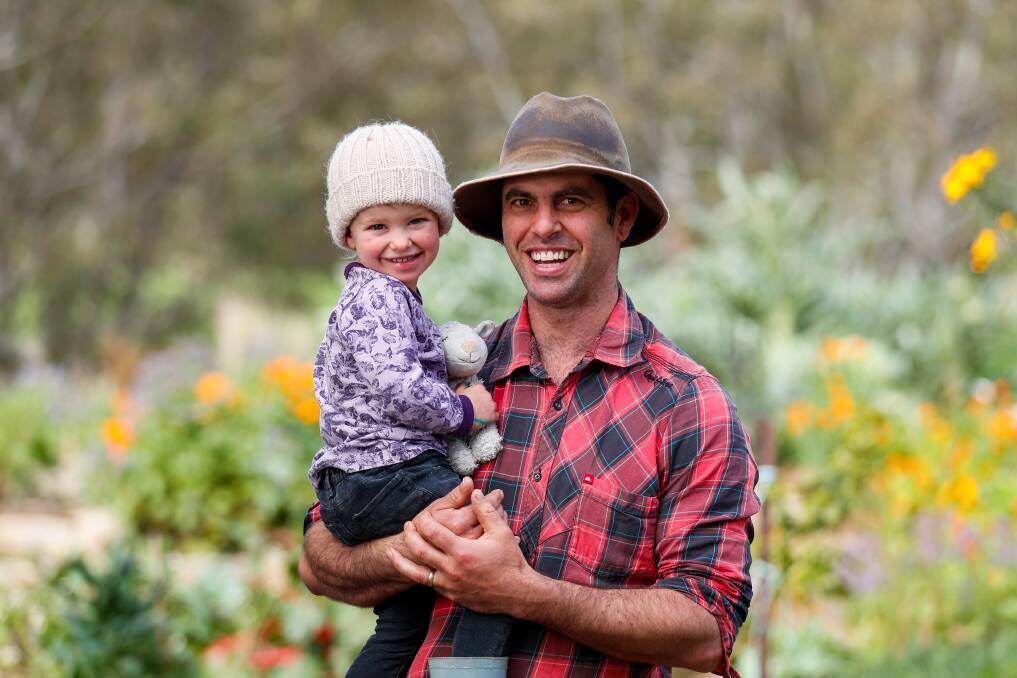
A new playgroup for south-west dads and their young children has begun and hopes to challenge outdated parenting and societal stereotypes.
Subscribe now for unlimited access.
$0/
(min cost $0)
or signup to continue reading
Its launch follows south-west research which found first time parents groups (FTPGs) continue to be widely recognised as 'mum's groups' and many dads who attended felt uncomfortable and stopped going.
Warrnambool Deakin University public health and health promotion lecturer Norma Barrett completed the Barriers to First Time Parent Groups study. She's currently working on an Australia-wide study about fathers' transition to parenthood, their support needs and how they're being met.
Warrnambool City Council approached Ms Barrett to investigate people's experience of FTPGs and why fathers were underrepresented.
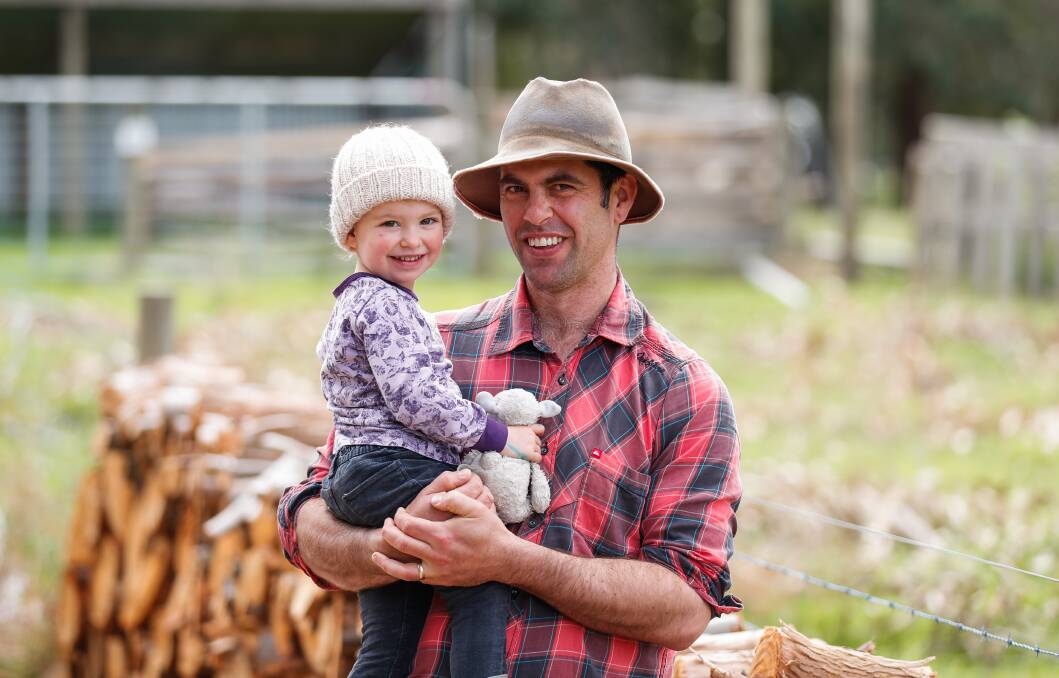
Ms Barrett said mum's groups were launched about 30 or 40 years ago when the "classic family situation" saw men as breadwinners and women as homemakers.
She said despite groups being renamed to be more inclusive, research indicated it was a national and international problem.
"Locally everyone knows them as mum's groups and very few dads tend to attend," Ms Barrett said.
She had trouble contacting dads for the FTPG study because parent group invitations were sent only to mothers, further highlighting the divide.
Initial findings of a second study Ms Barrett is currently working on has shown dads want health services to recognise them as individual parents and not just support partner for mothers.
She said men often felt invisible or that they weren't "legitimate parents" as many family and community health services were tailored to the birth parent and child, and communication was directed at the woman.
She said even the term Maternal and Child Health Service failed to address the whole family and statewide service provision, and language, needed to change to be inclusive of all family situations.
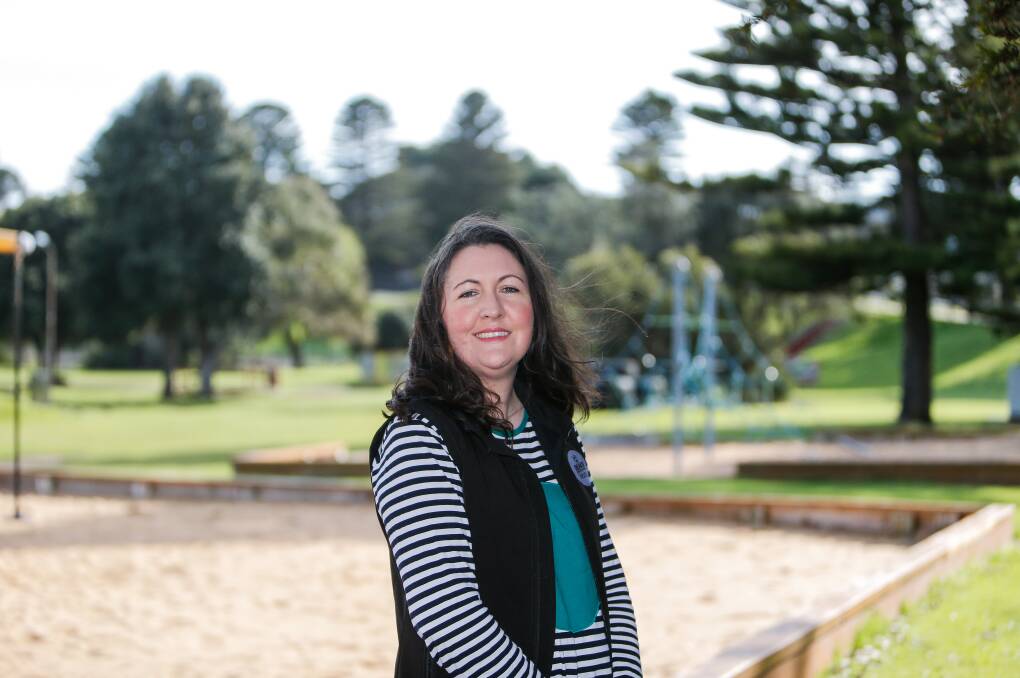
While she said men were stereotyped as not worrying about things, she found the opposite and said today's dads were "extremely considered people and extremely considered parents".
She said fathers recognised the value of having support during the transition to parenthood and in the early parenting years and were aware of their mental health.
"A lot of the things, like the baby not sleeping or their partner not sleeping it affects them, or if their partner is struggling, it affects them," she said.
"Or if they're really enjoying parenting then it's great for them. They're a parent, a legitimate parent."
She said dads seemed to be very flexible now with returning to work and wanted to be involved.
"Often fathers tend to go back to work because they tend to be the higher earner or it's the expectation that the mother stays at home," she said.
"I interviewed one dad who really wanted to be the stay at home dad but felt pressured by his family and society that he shouldn't because he had a really great job. He was suffering from mental health issues and he felt it was because he really wanted to be at home more and enjoy his children. Instead he was working in a really demanding role and didn't feel satisfied because he wanted to be with his young kids."
She said another felt very alone after the birth of his child, as his partner was rushed off for emergency surgery. He was left with an inconsolable baby they'd planned to breastfeed, and no-one asked how he was.
"There's examples like that where we expect men to have good mental health and be extremely resilient, but yet we don't support them at pivotal times of their lives to engage with health services and it's being missed."
She said in light of mental illness, parenthood was a "golden opportunity" for services to engage.
"We know that men's mental health is such a big issue, they also suffer from post partum depression as well."
Statistics from the Gidget Foundation, which supports the emotional well-being of expectant and new parents, show one-in-10 new dads are diagnosed with perinatal depression and anxiety.
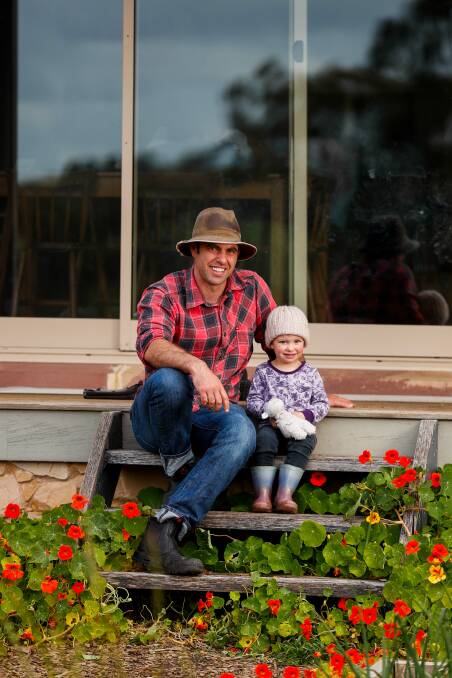
The actual number is thought to be higher as many are undiagnosed, while 50 per cent of parents experience adjustment disorders.
"Mother's health is assessed in the early stages of parenthood, yet there's nothing about men's mental health," Ms Barrett said. "They're treated like they're in silos but we know if someone is unwell in the family it affects the whole family."
She said other studies had found maternal and child health nurses weren't comfortable addressing men's health and when issues did present they "weren't sure how far to delve into it because their arena is more the mother's and baby's side of things".
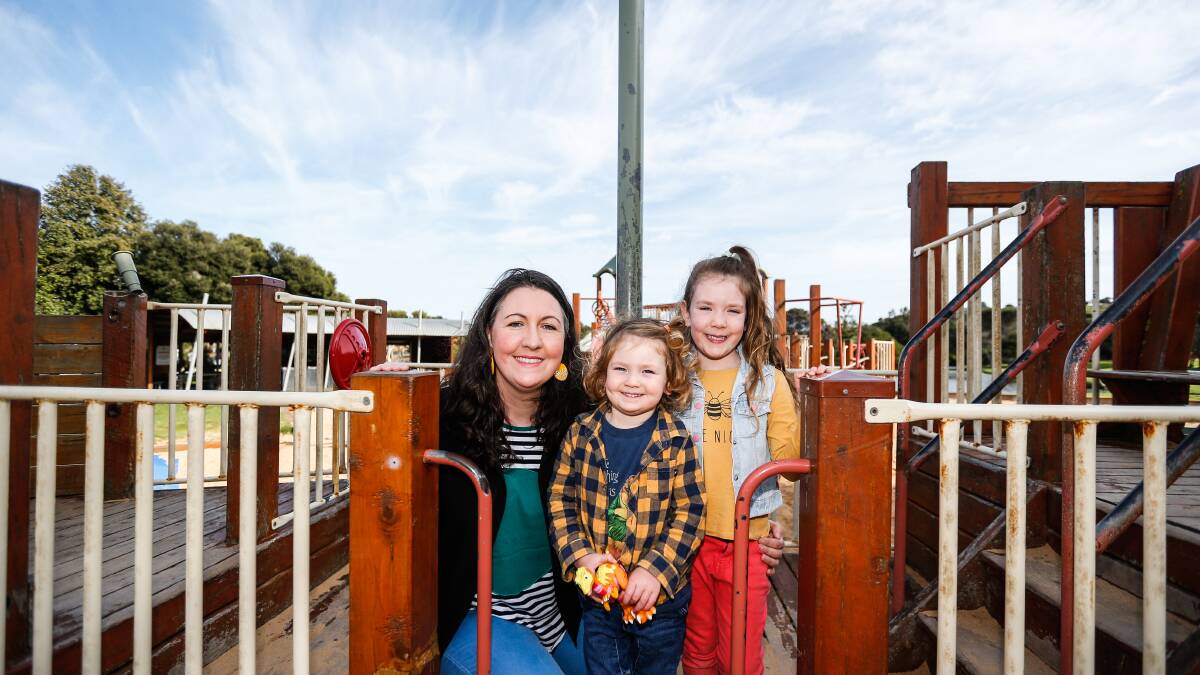
She said some fathers wanted parenting services to recognise them as individual parents and not just a support partner for mothers.
"They're very much at the forefront, they're very much responsible, but yet they're not. Some of them feel they're not really legitimised as parents yet and they're not supported as parents, even in the hospital."
While some dads were happy to be the support parent, "others feel offended by the fact they're seen as a support, that they're not seen as a parent in their own right".
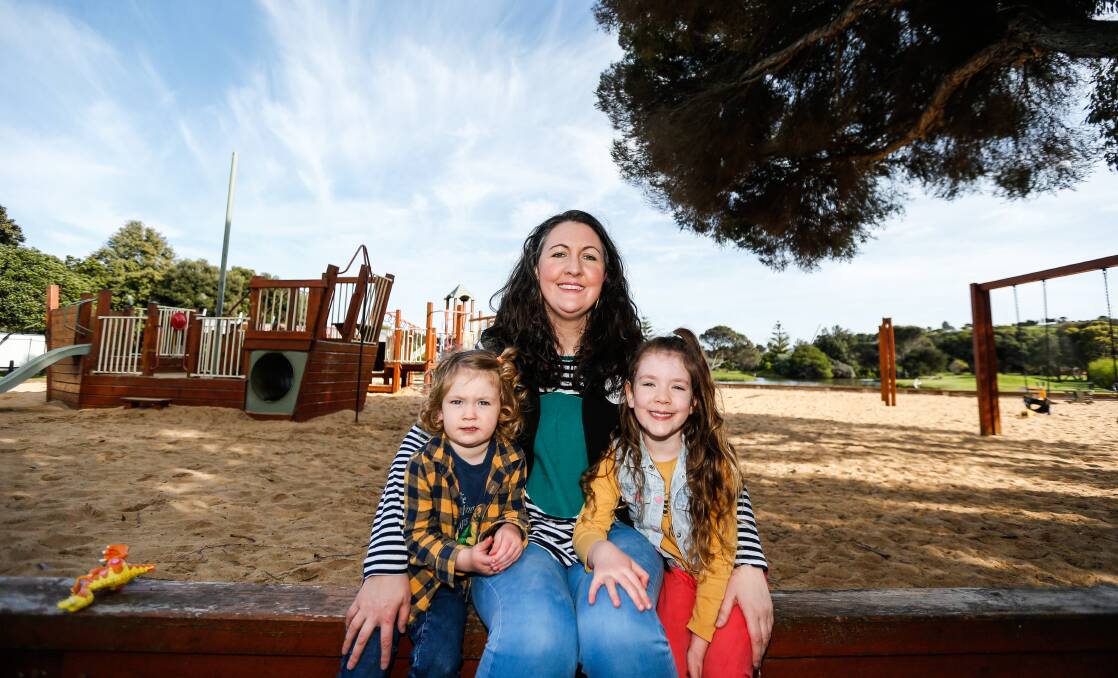
Stay-at-home dads also "experience this invisibility in terms of the services that are provided to families".
She said as men's relationships with their partner changed after a baby's arrival, men often lost contact with friends.
"When they do go to the FTPGs often they're the only dad there and they never go again. There's opportunities to be had in supporting dads and parents more broadly," she said.
"By looking after dads we're looking after the whole family. Only looking out for one parent doesn't really make sense. Ultimately what I would like to see is family based and holistic community services that don't just focus on the child and the biological mother, or birth mother. But the whole family and both parents, be it dads or a second mum or whatever might be the case."
Ms Barrett said parents groups needed to be more inclusive of different parenting experiences and philosophies and segregated groups might better address both parents' needs.
She said specific dads groups, such as the new playgroup, would target men and be clear they were welcome. "It does highlight, however, that the support needs of men in their transition to parenthood are not currently being met by the regular health and community-based health services."
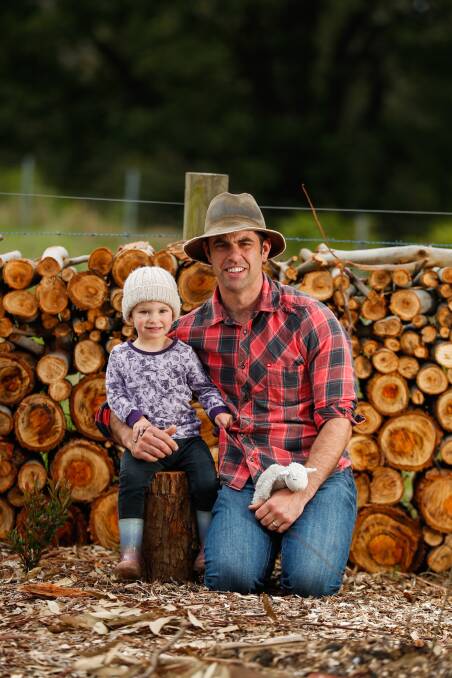
Playgroup facilitator and dad Paul Munksgaard knows the challenges men face when wanting to be a supportive and involved parent and partner.
He said one of the hardest things he faced was not being allowed to stay overnight at the hospital after daughter Luna, now 2, was born.
The new family left five hours later because they didn't want to be separated.
"It made me feel like I wasn't expected to be involved in looking after my wife and Luna, and it scared the hell out of my wife," he said. Mr Munksgaard said he was looking forward to attending the FTPG with Luna and "presumed" it was for all parents. He knew of people in Melbourne who'd made great friends through the groups and had stayed in contact.
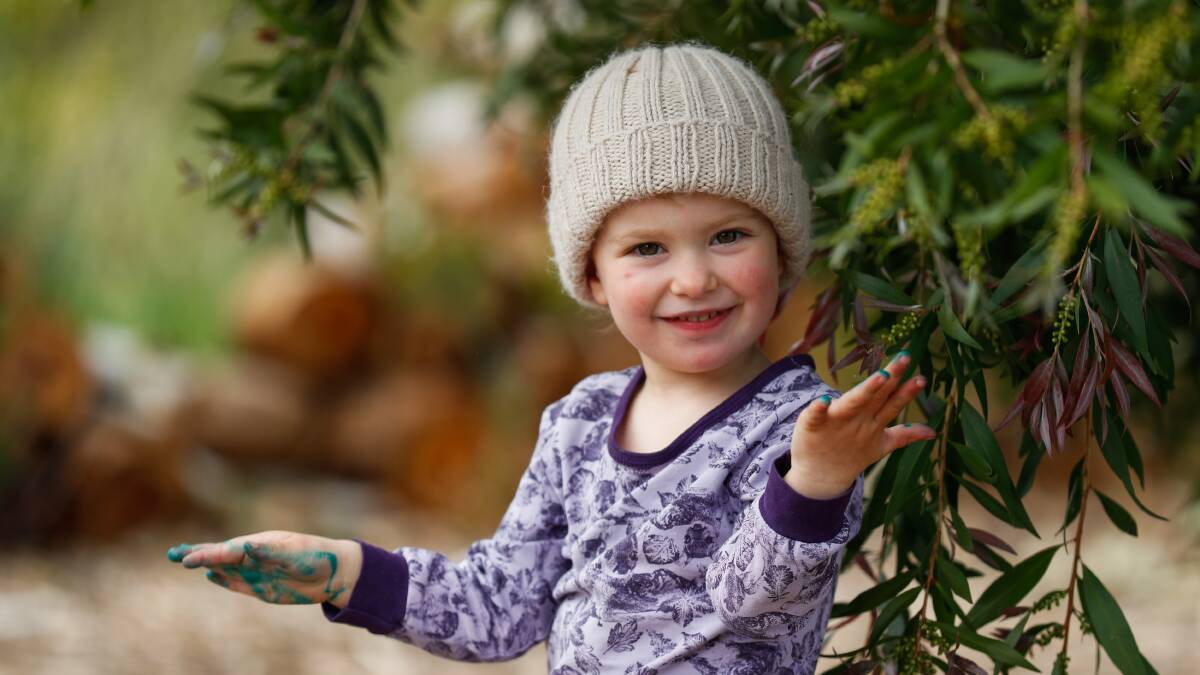
"I turned up to the first one and it wasn't overly comfortable," he said. "It was clear it was just for the mums. I didn't go again but I found it a bit strange that men weren't involved.
"It sets up this thing that it's the mum's job and not the dad's job, which isn't how my relationship works."
Mr Munksgaard hopes the informal playgroup, at the Warrnambool Breastfeeding Centre, will provide support and a meeting place. The first session was held this month and attendees talked about "what it's like being a dad in Warrnambool".
"They said they felt like dads were on the outer and there was some things that were more directed at the mums, such as the mum's groups and other playgroups they'd seen. They were impressed that it was starting and were keen to keep coming along," he said.
"We seem to have a lot of new families shifting into Warrnambool too so this whole thing of the man working on the dairy farm and the woman doing the parenting, isn't really what it is anymore and needs to move with the times. I think men have some pretty specific questions that hanging out with a group of other fathers would benefit them."
The playgroup is on October 16 from 10am. For details call Paul on 0421 772 229.

